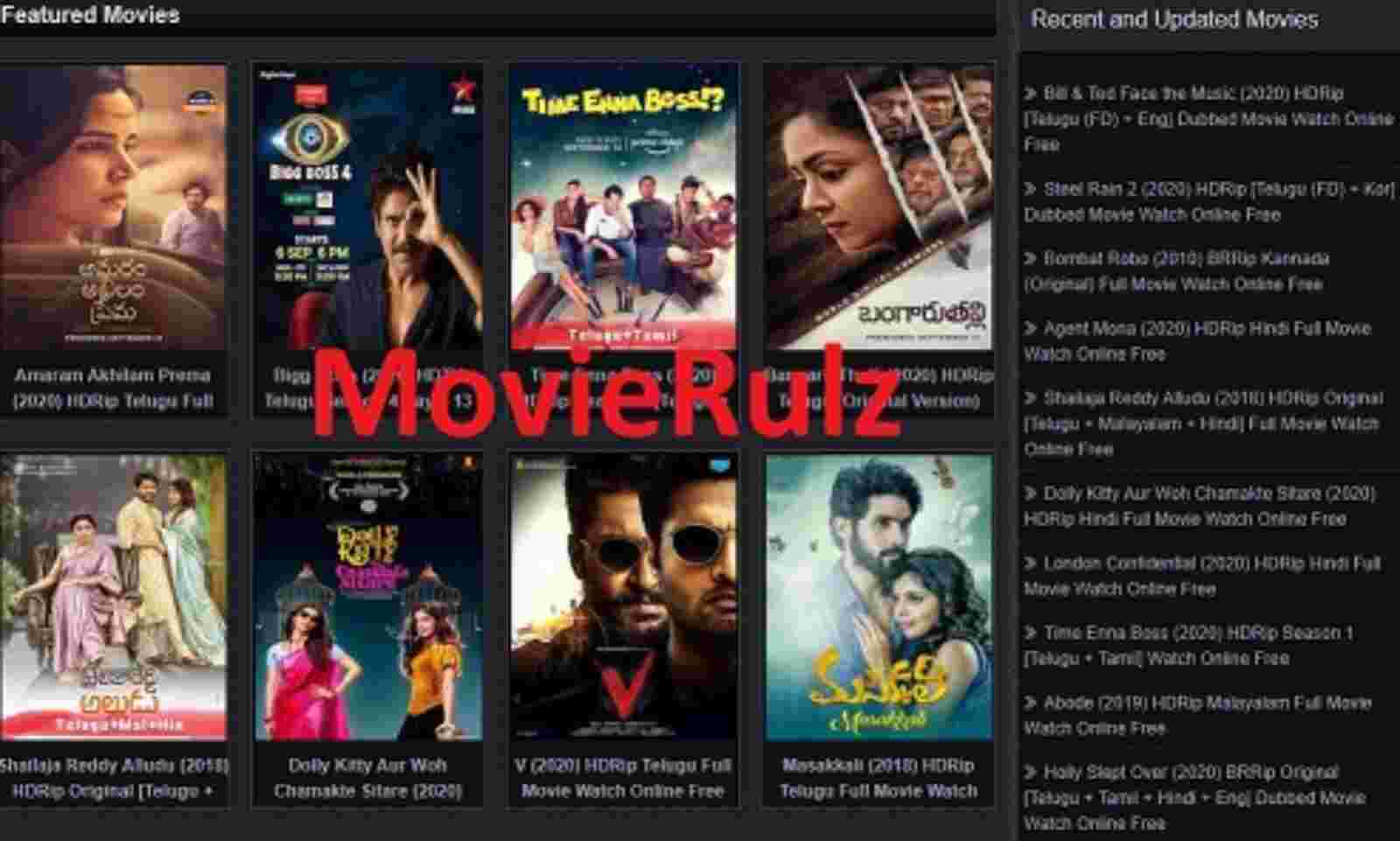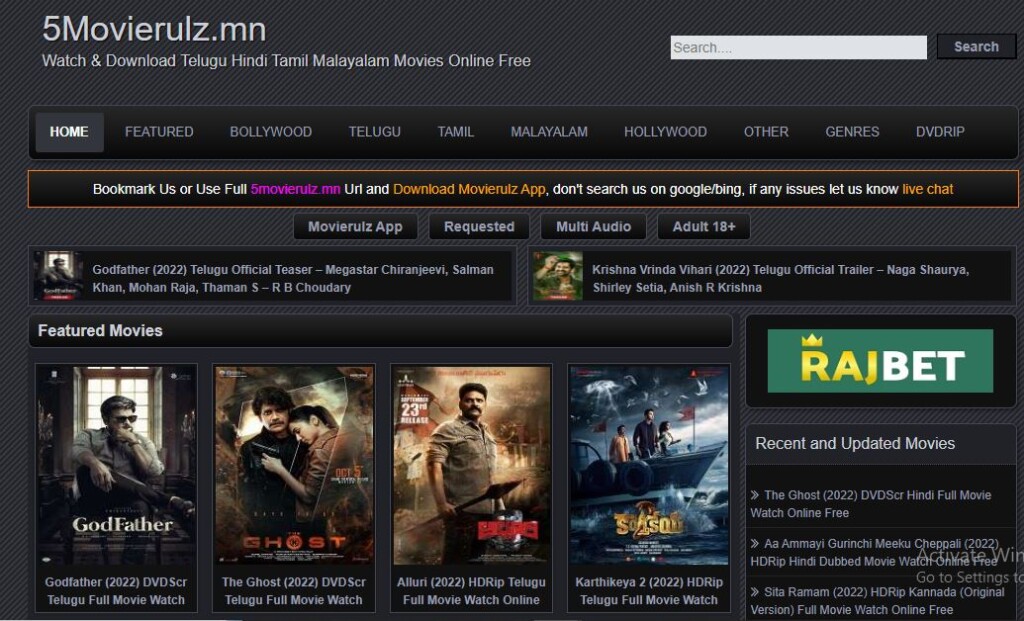In an era defined by instant access and boundless digital content, have we redefined our relationship with entertainment, and are we sacrificing the magic of the theatrical experience for the fleeting convenience of online streaming? The proliferation of platforms like Movierulz highlights a seismic shift in how we consume cinema, raising critical questions about piracy, artistic integrity, and the very future of the film industry.
The allure is undeniable: instant access to a vast library of films, from the latest Telugu blockbusters to classic Bollywood favorites, all available at the click of a button. Sites like Movierulz promise a treasure trove of cinematic experiences, offering everything from dubbed Kannada films to Hollywood action flicks. However, this ease of access comes at a steep price. Movierulz operates as a piracy website, providing unauthorized downloads of copyrighted material. This not only undermines the financial stability of the film industry but also devalues the creative efforts of countless individuals involved in bringing these stories to life.
The year 2024 witnessed a surge in both the production and consumption of Telugu cinema. Websites, both legal and illegal, played a crucial role in shaping audience perception and driving viewership. While platforms like Zee5 offer legitimate streaming options, providing access to a wide range of Telugu movies in full HD, the existence of piracy websites like Movierulz casts a long shadow. The impact of these illegal platforms extends beyond mere financial loss; it affects the morale of filmmakers and actors, discourages investment in new projects, and fosters a culture of disrespect for intellectual property.
- Watch Rulz Kannada Movie Online Streaming Now
- Latest Kannada Movies 2025 Trailers Reviews Where To Watch
The challenge lies in balancing the desire for convenient access with the need to protect the rights of creators. The film industry is a complex ecosystem, reliant on a delicate balance of investment, production, distribution, and revenue generation. When piracy becomes rampant, this balance is disrupted, threatening the long-term viability of the industry. Moreover, the availability of unauthorized content online can lead to a decline in the quality of films, as studios become less willing to take risks and invest in innovative projects.
Consider the animated adventure "Moana," a 2024 release that captivated audiences with its stunning visuals and heartfelt story. The film, clocking in at 99 minutes, follows Moana's journey alongside Maui and a new crew as they navigate the far seas of Oceania. While "Moana" achieved considerable success in theaters and on legitimate streaming platforms, it was also likely subject to widespread piracy. The ease with which such high-quality content can be illegally downloaded underscores the urgent need for effective anti-piracy measures.
Understanding the landscape of online film consumption requires a nuanced approach. It's not simply a matter of labeling all online viewers as pirates. Many individuals may be unaware of the legal implications of downloading copyrighted material, or they may be driven by a lack of affordable and accessible alternatives. Addressing this issue requires a multi-pronged strategy, including educating consumers about the consequences of piracy, providing legitimate streaming options at reasonable prices, and implementing robust anti-piracy measures to deter illegal activity.
- Watch Telugu Movies Online New Releases Reviews More
- Movierulz Your Ultimate Guide To Free Movies Streaming Updates
The allure of "free" content can be strong, but it's important to recognize the hidden costs. Piracy websites often generate revenue through intrusive advertising, exposing users to potential malware and security risks. Moreover, by supporting illegal platforms, viewers inadvertently contribute to the erosion of the film industry and the suppression of artistic expression. The long-term consequences of widespread piracy are far-reaching, potentially leading to a decline in the quality and diversity of films available to audiences.
In South India, the film industry is a cultural powerhouse, producing a vast array of movies in languages such as Telugu, Tamil, Kannada, and Malayalam. These films are deeply ingrained in the region's identity, reflecting its rich history, vibrant traditions, and diverse social landscape. The success of South Indian cinema is a testament to the talent and creativity of its filmmakers, actors, and technicians. However, the industry faces a constant battle against piracy, which threatens to undermine its economic viability and cultural significance.
The Movierulz phenomenon is not unique to South India; it's a global challenge that affects film industries around the world. Hollywood, Bollywood, and other major film production centers have all grappled with the issue of online piracy for years. While there is no easy solution, ongoing efforts to combat piracy include technological measures such as digital watermarking and content protection systems, as well as legal actions against websites that facilitate illegal downloads.
The rise of streaming services has undoubtedly transformed the way we watch movies, offering unparalleled convenience and access to a vast library of content. However, it's crucial to remember that these services rely on a sustainable business model, one that respects the rights of creators and ensures the continued production of high-quality films. By choosing to support legitimate streaming platforms, viewers can contribute to the health and vitality of the film industry, while also enjoying a safe and legal viewing experience.
Looking ahead to 2025, the fight against piracy is likely to intensify. As technology continues to evolve, so too will the methods used to distribute and consume films. The challenge for the film industry is to stay ahead of the curve, developing innovative strategies to protect its content while also meeting the evolving needs and expectations of audiences. This will require a collaborative effort involving filmmakers, distributors, technology companies, and government agencies.
The success of any film depends on a multitude of factors, including its artistic merit, marketing campaign, and distribution strategy. However, in the age of digital piracy, one of the most critical factors is the ability to protect the film from unauthorized distribution. This requires a proactive approach, involving the implementation of robust anti-piracy measures and the cultivation of a culture of respect for intellectual property. The future of cinema depends on it.
Consider "Max," a 2024 film that generated significant buzz upon its release. While the specific details of "Max" are not provided, the film's anticipated impact underscores the enduring power of cinema to captivate and inspire audiences. However, the success of "Max," like that of any film, is contingent on its ability to reach audiences through legitimate channels, free from the threat of piracy. The challenge for filmmakers is to create compelling stories that resonate with viewers, while also ensuring that their work is protected from illegal distribution.
The evolving movie industry demands a renewed focus on innovation and adaptation. Filmmakers must embrace new technologies and distribution models, while also remaining true to the art of storytelling. The challenge is to create films that are both commercially successful and artistically significant, captivating audiences while also pushing the boundaries of cinematic expression. The future of cinema lies in the hands of those who are willing to embrace change and challenge the status quo.
The discussions surrounding Movierulz and similar platforms frequently touch upon the concept of "freedom." However, this freedom often comes at the expense of others. The freedom to download copyrighted material without permission infringes upon the rights of creators, undermines the financial viability of the film industry, and ultimately diminishes the quality and diversity of films available to audiences. True freedom lies in respecting the rights of others and supporting the creative endeavors that enrich our lives.
In conclusion, the Movierulz phenomenon represents a complex challenge for the film industry. While the platform offers convenient access to a vast library of movies, it operates as a piracy website, undermining the rights of creators and threatening the long-term viability of the industry. Addressing this issue requires a multi-pronged strategy, including educating consumers about the consequences of piracy, providing legitimate streaming options at reasonable prices, and implementing robust anti-piracy measures to deter illegal activity. The future of cinema depends on our collective commitment to protecting the rights of creators and supporting the creative endeavors that enrich our lives. As viewers, we hold the power to shape the future of entertainment. By choosing to support legitimate platforms and respecting the rights of creators, we can ensure that the magic of cinema continues to thrive for generations to come.
The availability of movie reviews, trailers, and news plays a crucial role in shaping audience expectations and driving viewership. Platforms like Movierulz, despite their illegal nature, recognize the importance of providing comprehensive information about films. However, it's essential to rely on legitimate sources for movie reviews and news, as piracy websites often lack credibility and may promote biased or misleading information. By seeking out trusted sources, viewers can make informed decisions about which movies to watch and support.
The debate surrounding Movierulz also raises questions about the role of internet service providers (ISPs) in combating piracy. Should ISPs be required to block access to websites that facilitate illegal downloads? This is a complex issue, with arguments on both sides. Some argue that ISPs have a responsibility to protect intellectual property and prevent the distribution of copyrighted material. Others argue that blocking websites could lead to censorship and restrict access to information. Finding a balance between these competing interests is a key challenge in the fight against online piracy.
The rise of independent filmmaking has also been impacted by online piracy. Independent filmmakers often rely on crowdfunding and direct distribution to reach audiences. Piracy can severely undermine these efforts, making it difficult for independent filmmakers to recoup their investments and continue creating innovative and original films. Supporting independent cinema requires a conscious effort to seek out and support legitimate distribution channels.
The impact of Movierulz extends beyond the film industry, affecting other creative sectors as well. The principles at stake – copyright, intellectual property, and the right to fair compensation for creative work – are relevant to music, literature, and other forms of artistic expression. The fight against piracy is a fight for the future of creativity itself.



Detail Author:
- Name : Miss Malvina Pollich PhD
- Username : ilene13
- Email : lhayes@bauch.info
- Birthdate : 1988-07-17
- Address : 72632 Hill Divide Smithamhaven, NM 67415
- Phone : +1-423-885-3359
- Company : McClure, O'Keefe and Ullrich
- Job : Plating Machine Operator
- Bio : Non omnis placeat incidunt reiciendis illum. Perferendis ut quia repudiandae dolore dolorum. Iusto sed maxime eos perferendis et. Tenetur consequatur recusandae veritatis aut omnis eos assumenda.
Socials
linkedin:
- url : https://linkedin.com/in/macy_block
- username : macy_block
- bio : Unde ea dolor aut non.
- followers : 716
- following : 2978
twitter:
- url : https://twitter.com/macy7230
- username : macy7230
- bio : Iure fugit nam quis ducimus. Consectetur ipsam qui voluptatibus quo maxime fugit. Autem maxime odit facilis nemo corporis eos itaque.
- followers : 2771
- following : 2060
tiktok:
- url : https://tiktok.com/@macy273
- username : macy273
- bio : Aut perferendis nobis iste cumque laboriosam.
- followers : 1432
- following : 2943